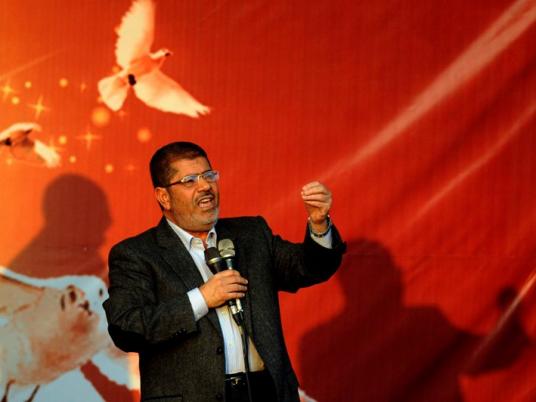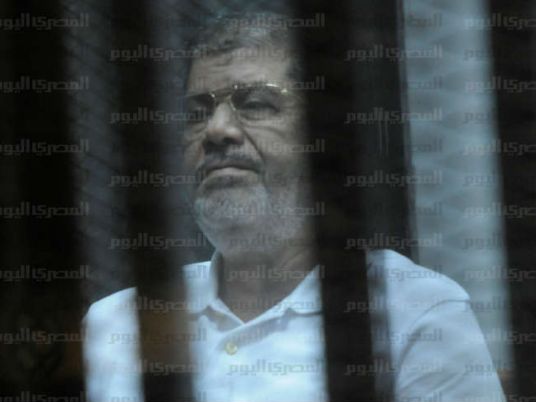
The Egyptian president's office said on Sunday it was committed to engaging "all political forces" to reach common ground on the constitution and stressed the "temporary nature" of a decree expanding President Mohamed Morsy's powers.
"This declaration is deemed necessary in order to hold accountable those responsible for the corruption as well as other crimes during the previous regime and the transitional period," the president’s office said in a statement.
That was a reference to the regime of long-time president Hosni Mubarak, who was ousted by a popular uprising early last year. Some 850 protesters were killed during the revolt, and hundreds more since.
Morsi ordered the reopening of investigations into those deaths, AFP reported. New prosecutor general Talaat Ibrahim Abdallah said "revolutionary courts" would be set up that could see Mubarak, his sons and his top security chiefs retried "should there be new evidence."
Facing a storm of protest from judges and political opponents who accuse Morsy of turning into a new dictator, the president's office said the decree was "not meant to concentrate powers," but to devolve them. It aimed to avoid the politicization of the judiciary, the statement said.
It also aimed to "abort any attempt" to dissolve either the body writing Egypt's constitution or the upper house of Parliament, both of them dominated by Islamists allied to Morsy, the statement added.
"The president's office stresses its firm commitment to engage all political forces in the inclusive democratic dialogue to reach a common ground and bridge the gap in order to reach a national consensus on the constitution," it added.
Egypt's highest judicial authority said a decree issued by President Mohamed Morsy and which shields his decisions from judicial review must only be applied to decisions or laws relating to "sovereign matters."
The Supreme Judicial Council in a statement read on state TV also called on judges to keep courts and prosecution offices functioning after the influential Judges' Club called on Saturday for a countrywide strike in protest at Morsy's decree.
Egyptian Justice Minister Ahmed Mekky has started mediation efforts to try to end a crisis between Egypt's executive and judicial authorities, state TV reported on Sunday.
It was the first public sign of a government attempt to resolve a crisis ignited by President Mohamed Morsy's decision to expand his powers and protect his decisions from judicial review.
Mekky, who has said he has "some reservations" about Morsy's decree, convened a meeting at the Supreme Court headquarters in Cairo, state TV reported, without giving further details.

